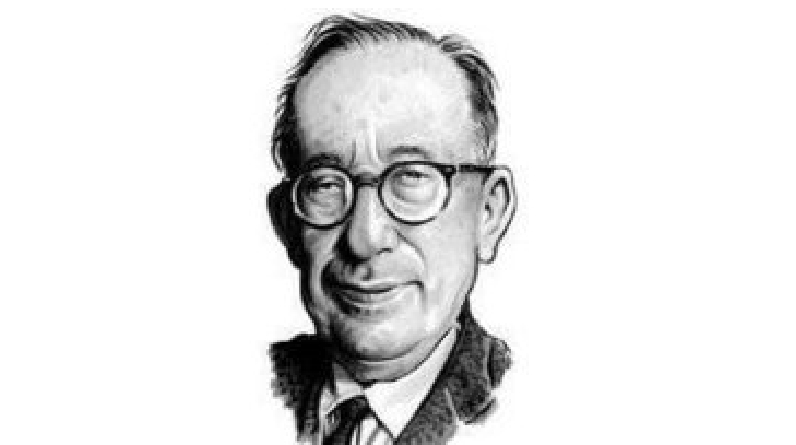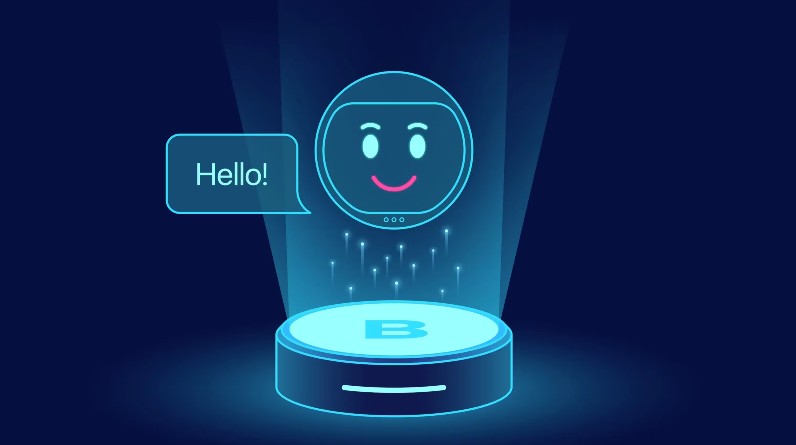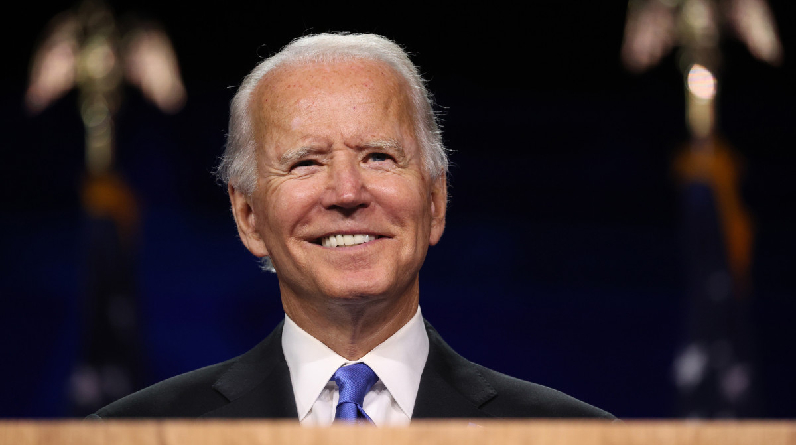The spirit of our time seems to forbid classical liberalism just when it is most needed. Inflation, an energy crisis, and a dehumanising culture have replaced hopes of making America great again or returning to normalcy. But while our current reality has some material similarities to the 1970s, our politics are increasingly resembling the 1930s: Our language has become increasingly nihilistic, where victory is the only criterion for success. Is there a way to reverse the trend away from problem-solving so that we can work together to create a better future?
There was a time not too long ago when liberal democracy was universally accepted. This term connotes not just free and fair elections, but also the inalienable right to free expression and peaceful assembly. These rights appear to have dwindled in importance in the minds of contemporary Americans. Pew Research Center found that in 2021, “roughly half of U.S. adults (48%) now say the government should take steps to restrict false information, even if it means losing some freedom to access and publish content.” One in ten respondents to a different survey also defend the use of force against the government in the present day. However, democracy is nothing but a sham if people aren’t guaranteed their individual rights.
Historically, we might have responded to these sorts of problems with bicameral reforms and unified messages. You might picture a Democrat Georgian farmer who became a Christian and “deregulated oil, trucking, railroads, airlines, and beer.” Alternatively, the Republican governor of California, who admired FDR, once said that immigrants were “one of the most important sources of America’s greatness.” That, however, was then.
Illiberalism’s Surprising Success
The days of political moderation and win-win situations are long gone. Consider the words of environmentalist Jamie Henn, who recently voiced concern that we might reduce carbon emissions without radically overhauling our entire society: “Look, I want to get carbon out of the atmosphere… but this is such an opportunity to remake our society. What a nightmare it would be if we simply carried over the same harms into a clean energy economy. Henn is afraid that even if we get to zero emissions, it will be at the expense of private industry. What a terrible thing! To the dismay of many conservatives, Henn confirmed their suspicions that environmental concerns were being used as a smokescreen for advancing broader left-wing policy goals.
Yet it’s clear that the right also has its own take on this. Take, for example, Andrew Sullivan’s interview with “post-liberal” New Right icon Sohrab Ahmari in August. Sullivan proposed a number of small changes to allay Ahmari’s stated worries about obscenity and corporate dominance. Why is it that Ahmari cannot solve the issues he cares about “within the rubric of a liberal society”? The “key post-liberal insight is that coercion is inevitable,” Ahmari said (emphasis is mine). The liberal concept of a separate and uninvolved private sphere is a mirage, according to post-liberals like Ahmari. The only open question is in whose interest we use force. One of post-main liberalism’s complaints about liberalism is not that it protects people’s privacy and other inalienable rights. The liberal myth of the private sphere is more to blame for this group’s problems.
That echoes a bit: Nihilists in 1930s Germany, led by the Nazi Party, opposed the open society as “based on hypocrisy.” The professor Leo Strauss, in a 1941 speech analysing German nihilism, offered a provisional definition of nihilism as “the desire to destroy the present world and its potentialities, a desire not accompanied by any clear conception of what one wants to put in its place.”
The criticism of open society that Ahmari made back then is eerily similar to what we hear today. Even though Sullivan has offered some improvements, he is not happy with them. The liberal facade, the myth of the private sphere of autonomy, would be protected by Sullivan’s incrementalism even if it were successful. Because of this, Ahmari is worried that we will address some of his apparent concerns but fail to seize this opportunity to radically transform our society (or, one suspects, to reveal its true identity).
There are two levels to the post-liberal critique of liberalism. For one, it’s tangible: It relates to an observed pattern or set of facts in economics, ecology, or society. Most of the layer’s sheen comes from here. There is also an underlying psychological cause: a generalised dislike for the current political and economic system.
Therefore, post-liberalism poses a significant difficulty. When confronted with lyrical lamentations of decadence, liberal thinkers all too often respond with graphs showing rising GDP growth or declining carbon emissions. Most of the time, it seems like they are oblivious to the emotional depths that inform the post-liberal pity party. (In part, this is the fault of post-liberals, who frequently employ euphemism and obfuscation to mask their true goals.)
Instead of calming the fears of post-liberals, evidence-based rebuttals tend to increase their conviction that change is impossible in a free and open society. If we remove the factual criticism of liberalism, we can see the real, psychological complaints. The liberal looks like a greedy mercenary who is only concerned with money and property rights, even when serious ethical issues are at stake. According to Acton Institute’s director of research, “the case for free markets will lose if it remains narrowly economic in its content and emphasis.”
Many liberals might view the successful exposure of the other side’s irrationality as a victory. What if, however, the opposing camp continues to gain new supporters? Do current trends in American political discourse not indicate that the illiberal agenda is gaining ground? Why then have liberals struggled to even acknowledge the subjective aspects of post-liberal thought, let alone effectively respond to them?
Before we can fix the situation, we need to know how it got to this point. Explain the triumph of illiberalism. We need to know why liberalism hasn’t worked. How we got here and, more importantly, how to get out of here, could be revealed by looking at similar situations in the past.
Leo Strauss’s Pragmatic Liberalism

It’s not immediately obvious that German-American academic Leo Strauss belongs in the same category as “liberal” or “practical.” Many people have criticised Strauss for being a “anti-liberal” philosopher. That criticism has some merit, since Strauss has made a name for himself by levelling charges against modern liberals like Hobbes and Locke.
Nor does the term “practical” appear to describe Strauss’s ideas. The gap between theory and practise is often cited by Strauss’s fans as the author’s central theme. Strauss’s writing has a “radical disjunct between theoretical and practical life,” according to Timothy W. Burns. Strauss not only did not produce any practical philosophy, but he also criticised the very concept of practical philosophy.
Despite these concerns, Strauss’s writings may provide us with useful insights into how to defend liberal democracy in the modern world. In February 1941, Strauss addressed the graduate faculty at the New School on the topic of “German Nihilism,” as previously mentioned. Before Pearl Harbor and the United States’ entry into World War II, Strauss gave a speech in which he anticipated the consequences of an Allied victory. It’s possible that the Allies will emerge victorious, but “the defeat of National Socialism will not necessarily mean the end of German nihilism,” he warned. This may have seemed like an odd thing to worry about when Hitler was occupying France. Nonetheless, given the current state of politics, who can argue with Strauss?
Strauss, a Jew who fled Nazi Germany in 1932, was well-versed in the country’s intellectual and cultural scene. It was “certain lectures and conversations and discussions which I remember” that he said helped him understand the world he was living in at the time “much better than the so-called final statements which I could read later in print,” as he wrote in “Living Issues of Postwar German Philosophy.” German philosophers Edmund Husserl, Carl Schmitt, and Martin Heidegger weren’t just names on a list for Strauss; they were people he knew and talked to. In addition, Strauss could relate to nihilists because he was a committed Nietzschean in his early twenties.
See Also: Five of the most legendary Jordans you must have
Why did Germany, once the pinnacle of European culture, descend into such barbarism in the decades following World War One? Strauss begins by saying, “German liberal democracy of all descriptions seemed to many people to be absolutely unable to cope with the difficulties with which Germany was confronted.” The rise of German nihilism can be traced back to a number of factors, including hyperinflation, the humiliation of military defeat, the peace agreement reached at Versailles, and domestic unrest within Germany itself.
But the nihilistic rejection went beyond mere dissatisfaction with the present state of affairs. Difficulties in the economy and government during the Weimar Republic “created a profound prejudice” against liberal democracy, but this did not indicate a specific course of action. There were still two other possibilities. The first of these was “simple reaction,” or the wish to revert to a more innocent era. A communist revolution occurred in the second.
The German youth viewed the communist revolution as inevitable and the conservative restoration as impossible. They rejected the former option, traditional conservatism, as hopeless because they bought into the Marxist myth that the world was heading towards a communist utopia. A supplement was required. According to Strauss, this is a common “fallacy” among young people. They were too enamoured with social science—”that modern astrology”—to realise that communism’s utopia was a pipe dream. The parallels to our modern world are striking here. Those on the American New Right, for example, who believe progressive narratives about “market fundamentalism,” “neoliberalism,” and the need to “reimagine capitalism” despite their clear empirical flaws come to mind.
According to Strauss, “quite a few very intelligent and very decent, if very young, Germans found the prospect of a pacified planet, without rulers and ruled, of a planetary society devoted to production and consumption only, to the production and consumption of spiritual as well as material merchandise, positively horrifying.” In other words, this is the utopia promised by Marxism and communism. This hopelessness, “at least as much as the desperate present,” is what ultimately drove the nihilist to despair. Reducing material worries wouldn’t have helped. Because they were concerned about their own economic and social standing, young people “did not object to that prospect.”
If that’s the case, then what could have been done differently? What went wrong and what could have been done to prevent the tragedy are hinted at in Strauss’s description of postwar Germany.
The Cave by Plato: a Warning from the Ancient Greek Philosopher
According to Strauss, the German youth “needed old-fashioned teachers who would be undogmatic enough to understand the aspirations of their pupils.” It appears that low educational standards in Germany are contributing to the country’s prevailing cynicism. An earlier allusion to Glaucon, a character from Plato’s Republic, reveals the breadth of Strauss’ analysis.
In Plato’s Republic, set in late fifth-century Athens, a recent plague exposes the moral failings of the city’s inhabitants. The chasm between Athens’ former imperial ambitions and its current decadent, unstable state is being faced head-on. The city-state went from being a world power to one that can’t even govern itself in just a few short decades. At the time of the Republic, Athens had lost faith in its moral claim to lead Greece, which Pericles had once proclaimed.
Glaucon is the younger sibling of Plato, and he is an ambitious idealist. Scholar of Plato Alex Priou describes Glaucon’s attitude as “protesting simplicity and demanding luxury.” (A modern-day analogue to this conflict can be found in the “trad” movement, which is very vocal online about its rejection of technology and modernity.) This city of Athens’ corruption has finally worn Glaucon down. Though he has an idea that he wants justice, he isn’t sure how to get it. A proto-Nietzschean orator named Thrasymachus “talked him deaf” to the point where Glaucon begs Socrates for advice.
Socrates can easily engage the attention of a young man like Glaucon thanks to his conversational skills. To do this, Socrates first convinces him of the need for justice by proposing the existence of a morally superior ruling class, and then he demonstrates that a world without imperfections is impossible. Socrates’ proposal of a “philosopher king” to establish a just and prosperous city is a thought-provoking absurdity, since no single ruler could ever have all the ethical and pragmatic wisdom required to realise such an ideal. (Consider this a forerunner to Friedrich Hayek’s knowledge paradox.)
Socrates encourages “political moderation” in Glaucon through his talk of philosopher kings. The Greek philosopher Priou points out that
When compared to Thucydides, the Republic becomes a cautionary tale about how easy it is for men to fall prey to grand visions of political and personal transformation, to redemptive and salvific projects both in this life and the next. The Republic has been called a book about the bounds of politics.
Through Glaucon, we can see that adolescent cynicism is not a product of the modern era alone. Nihilism is more than just a rejection of modern life. Strauss defines nihilism as “the rejection of the principles of civilization as such.” Nihilism cannot be solved by a post-liberal civilization, even if such a thing were theoretically possible in the Western world. In fact, disappointment and disillusionment may result from the inevitable gap between theory and practise, threatening the post-liberal dream of a rightly ordered state oriented toward the common good and virtue.
So, What Are Our Plans For Today?
Teachers like Socrates, who could have shown the young Germans the limits of politics and the necessity of moderation, were sorely lacking. Yet, what about the youth of today? The idea that traditional education is the answer to the problem of nihilism has been questioned by people like Sam Goldman, who writes, “the yearning for risk and commitment he describes can only rarely be satisfied in the library or classroom.” Moreover, traditional, classical education is on the decline, and teachers akin to Strauss or Socrates are increasingly unusual. The current educational system has many similarities to the “progressive education system” of the Weimar Republic, which Strauss called “the most dangerous thing for these young men,” suggesting that betting on their return may be unwise.
The other points Strauss makes are hardly more upbeat. The young Germans, shocked by the modern lack of morality, “would have been impressed as much as we were, by what Winston Churchill said after the defeat in Flanders about Britain’s finest hour,” Churchill said. No matter how much we may pretend otherwise, greatness at the individual level is still possible in the modern world. Some statesmen may be able to calm the nihilists’ fears about the future of civilization. This could be true, but hoping for a third Churchill is not a practical strategy right now. Yet there is little optimism that such leaders can emerge from within our political class.
However, what about the church? “They knew that they were the sons and grandsons and great-grandsons of godless men,” Strauss says of modern-day German youth. Possibly a more devout German population would have been less receptive to the paganism of National Socialism. The decline of religious institutions in modern society has coincided with the rise of illiberalism. Although, in the meantime, waiting for revival is not a workable answer to pressing political and economic issues.
The “fallacy” that Strauss mentioned could provide a final piece of information. It was the view of the nihilists that the communists’ vision of the future was the most accurate. Even back then, many people could see that this was incorrect.
However, it is questionable whether or not introducing the ideas of Mises and Hayek to young Germans would have been beneficial. Someone who is worried that history is taking the wrong turn is unlikely to be comforted by the idea that the future is unknown and unknowable. Perhaps communist utopia is not the final destination of humanity. But that denial does not give nihilists a clear, different perspective.
Then what can be done to stem the growing tide of cynicism? There is no time to waste waiting for a new Churchill or Great Awakening. What happens if there aren’t enough conventional educators, and if counterarguments based on economics are ineffective? Are we to continue confronting the post-liberals with data and proof?
We need a better understanding of the issue before we can provide answers to these questions. Is there a contemporary movement analogous to the nihilists of the 1930s, who opposed communism’s optimistic view of the future? To what kind of a future do modern nihilists object, exactly? What, then, is the counterargument? Because “in the realm of the mind, taking a defensive stand looks like admitting defeat,” even “the most ardent upholders of the principle of progress, of an essentially aggressive principle,” as Strauss puts it, “were compelled to take a defensive stand.”
To the public, liberals of both the right and the left continue to appear as the sole defenders of an unfavourable status quo. In order to effectively counteract nihilism and post-liberalism, liberals must acknowledge the post-liberals’ most pressing worries and offer a positive vision for the future that addresses these issues.








